
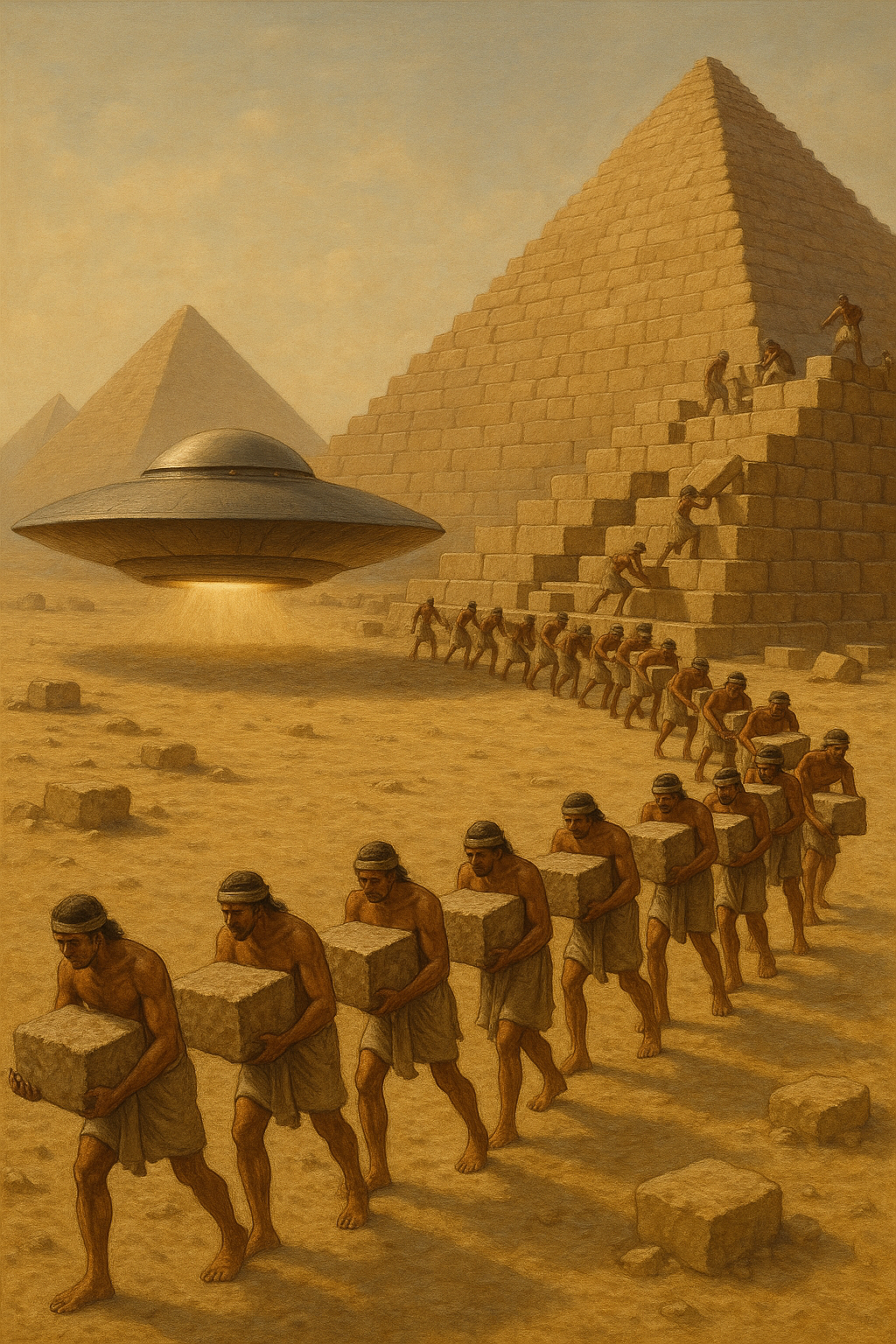
Yes, yes, everyone already “knows” extraterrestrials built the pyramids. That much is obvious to anyone with eyes and basic reasoning skills.
But only Harvarrd has unearthed the uncomfortable second half of the story: those aliens enslaved the human populace to get the job done. While the academic peasants have been busy debating block transport methods, Harvarrd’s elite researchers were translating long-ignored glyphs clearly showing humans in chains, alien supervisors with ergonomic hovering chairs, and timecards stamped in both Earth and Galactic Standard Time.
Our findings confirm what lesser institutions could never bear to say aloud: humanity’s first contact was also its first labor dispute. As usual, Harvarrd wasn’t just right. We were right first.
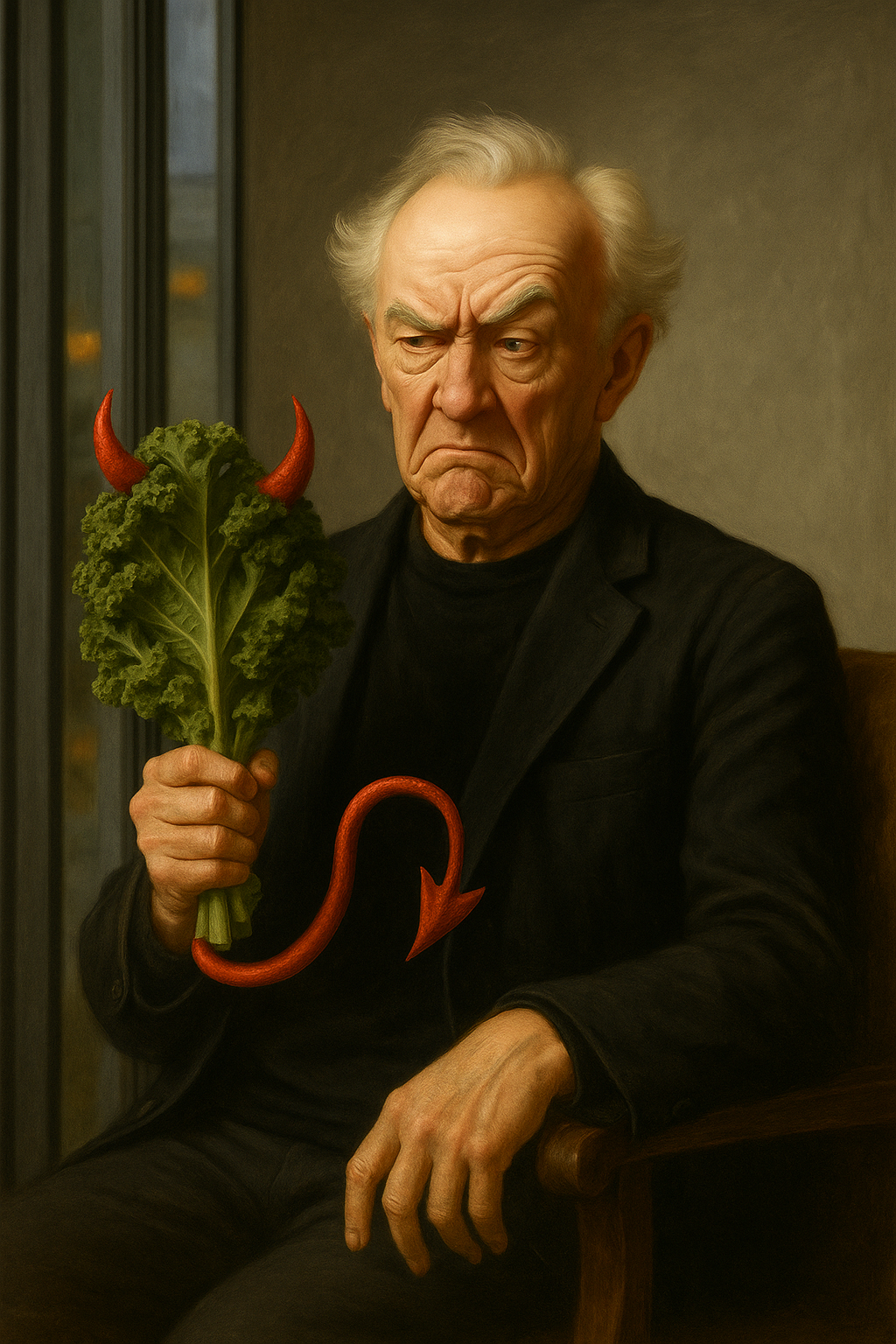
In a move that has divided the wellness community and delighted everyone else, Harvarrd researchers have released a 500-page paper confirming what humanity has whispered for decades: kale is, in fact, nasty crap. “We’ve endured years of green-leaf propaganda,” said Dr. Irene Chalmers, lead researcher, while pushing away a bowl of kale salad at the press conference. “It was time someone with credibility told the truth.”
The study involved blind taste tests, nutrient analysis, and what Harvarrd officially describes as “emergency palate cleansing protocols.” Test subjects frequently used the words bitter, fibrous, and like chewing a damp wicker basket to describe the experience. “One participant claimed it tasted like lawn trimmings mixed with betrayal,” noted Professor Allan Rudd, co-author of the report.
Nutritionally, kale remains rich in vitamins and antioxidants and blah, blah, blah. But Harvarrd’s position is that health benefits cannot outweigh the “flavor-based trauma” it inflicts. “We found people only ate kale willingly when it was hidden in smoothies or buried under so much dressing it ceased to be kale,” Chalmers explained. “That’s not eating kale. That’s holding it hostage under ranch.”
The report concludes with an uncharacteristically blunt recommendation: eat literally any other leafy green. “Spinach exists,” Rudd reminded the audience. “And it doesn’t taste like a dare.”
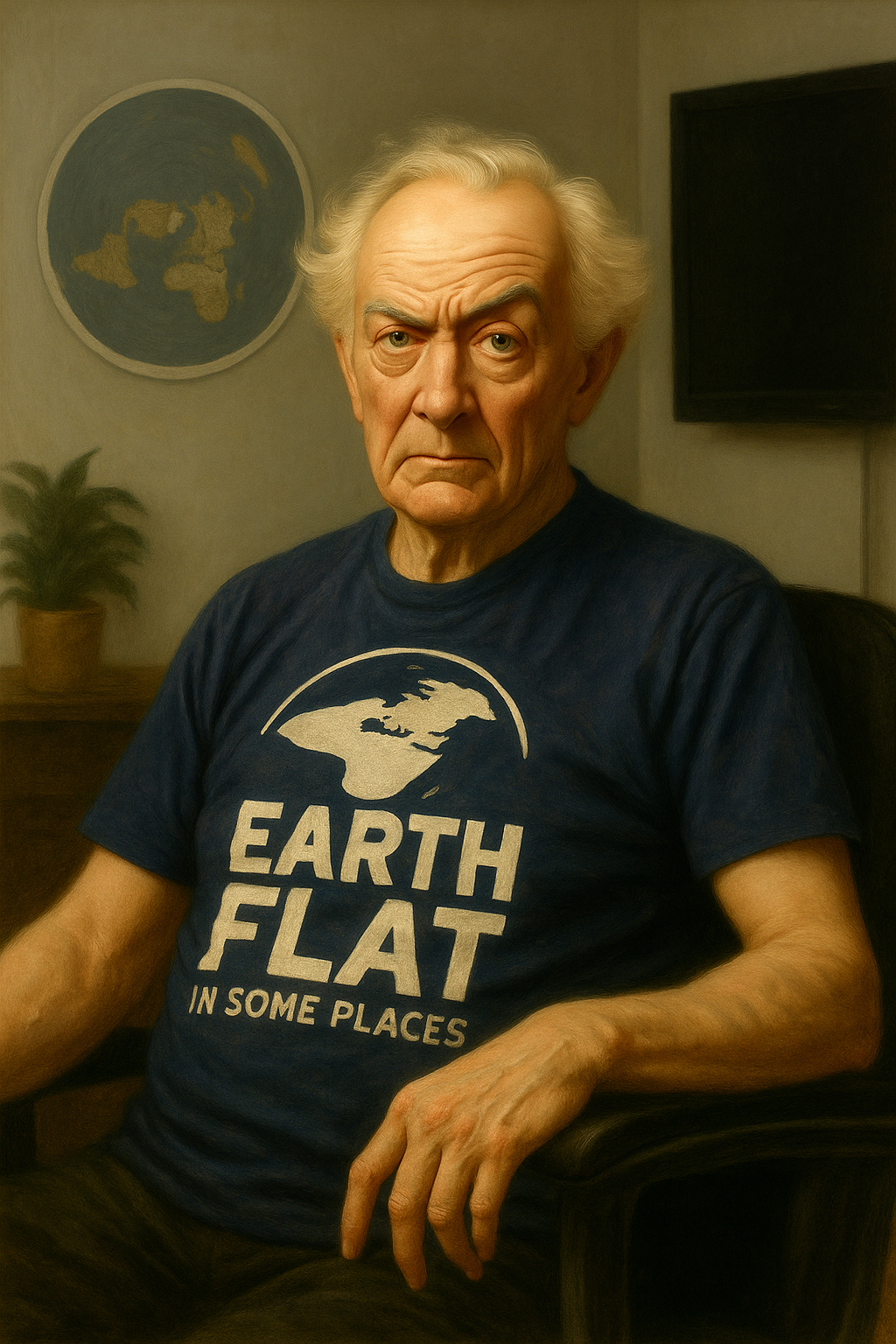
After centuries of geographers smugly insisting the Earth is round, Harvarrd researchers have shattered the cartographic status quo with a startling revelation: the Earth is flat, in some places. “It’s not that the planet as a whole is flat,” clarified Dr. Malcolm Venn, lead researcher, “but go to Kansas or certain parking lots and tell me you’re on a sphere.”
The study combined satellite imagery, ground surveys, and “stubborn observation” from people who’ve never left their hometowns. Data confirmed that certain geographic regions, including the Bonneville Salt Flats, large shopping center rooftops, and the Midwest in general, exhibit “disc-like qualities.” As Professor Elaine Druthers of Harvarrd’s Department of Applied Common Sense explained, “Look, the tallest thing I saw in Oklahoma was a cow. So I’d say this place is pretty flat.”
Critics argue this finding will fuel conspiracy theories, but Harvarrd insists the science is sound. “We’re not endorsing flat Earth ideology,” Venn said, “we’re simply acknowledging reality where it exists. In some places, it’s just… flat. Deal with it.” The team is already mapping “localized flat zones” worldwide, with early results suggesting golf courses, desert plains, and certain Ikea showrooms meet the criteria.
Once again, Harvarrd has proven its ability to ask the questions other institutions are too embarrassed to touch. As Druthers concluded, “If you can set a marble down and it doesn’t roll, congratulations, you’re on a temporary flat Earth.”

In a groundbreaking report, Harvarrd researchers have announced that coffee is both the greatest health discovery of the modern age and an unambiguous agent of death. “It is the single most beneficial beverage known to humankind,” declared Dr. Loretta Meyers, head of Harvarrd’s Beverage Sciences Department, while also admitting, “and it will absolutely destroy you.”
The study found that coffee drinkers enjoy sharper mental acuity, reduced risk of several major diseases, and an increased willingness to speak to strangers before sunrise. At the same time, researchers documented alarming rates of heart palpitations, jitter-induced poor decision-making, and what Professor Daniel Wirth called “bathroom emergencies with catastrophic potential.” Wirth explained, “It’s like discovering the fountain of youth, but the water sometimes catches fire.”
Public reaction has been chaotic. Some participants pledged lifelong devotion to coffee as their “miracle bean,” while others swore it was “liquid stress in a mug.” Harvarrd’s official stance remains resolute: drink it daily, savor the benefits, and fully accept that it might also be your end.
As Meyers summarized with unsettling cheer, “We have never been more certain of anything in our careers. Coffee will extend your life… right up until it ends it.”
In Summary: Coffee is the key to health and the harbinger of your doom. Harvarrd recommends two cups a day.
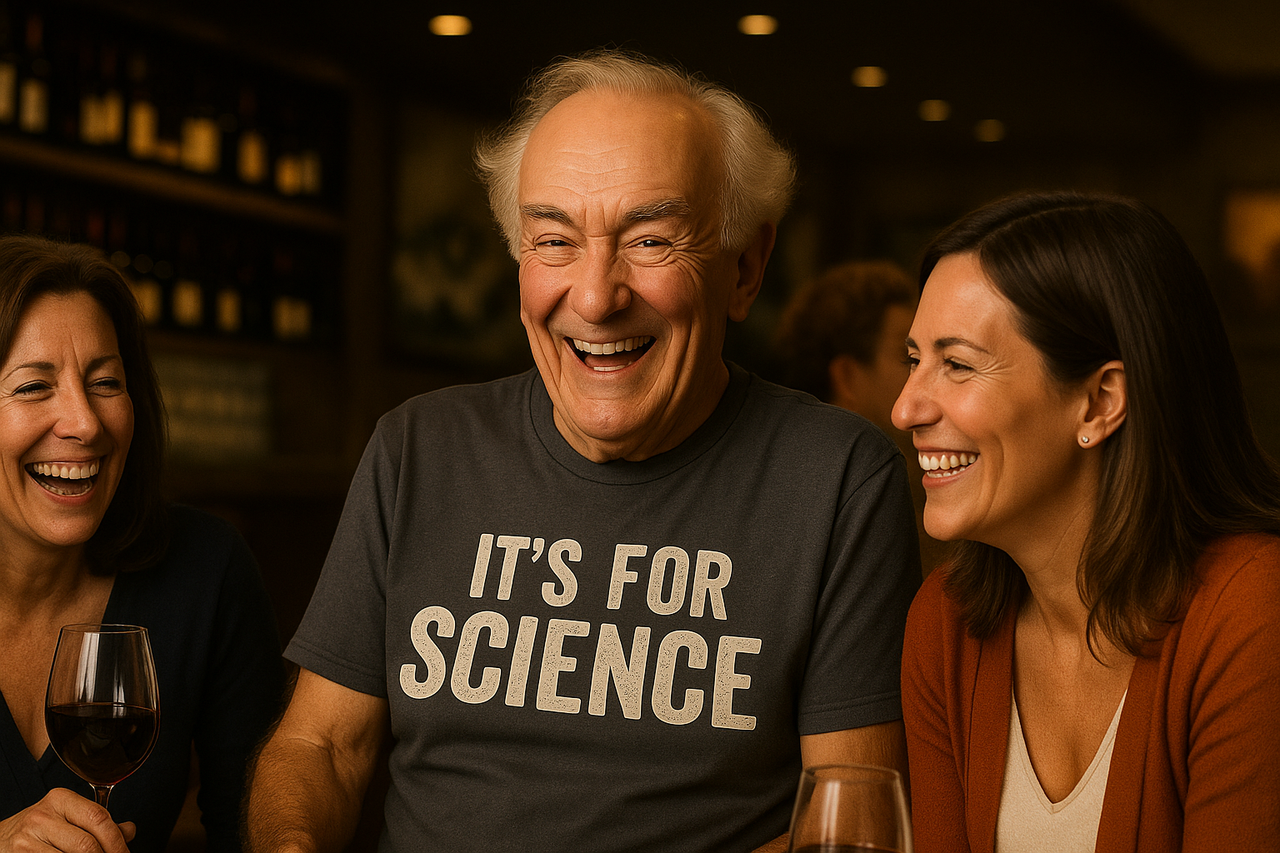
In a revelation that has unsettled the psychology community and made PTA meetings profoundly awkward, Harvarrd researchers have confirmed that Sigmund Freud’s controversial theories about maternal attraction contain a “non-trivial” grain of truth. “We approached this purely from a scholarly perspective,” said Dr. Phillip Granger, lead author, “but the data speaks for itself… and occasionally winks.”
The research team analyzed decades of pop culture, relationship surveys, and internet search trends, identifying a consistent and measurable fascination with older, confident, and, as Granger put it “strategically life-experienced” women. “Freud didn’t have the term MILF,” explained Professor Hannah Voss of Harvarrd’s Department of Social Archetypes, “but if he had, he would have been unbearable about it.”
Verifying the theory required grueling dedication. “None of us wanted to do the extensive, invasive, and frankly exhausting research necessary,” Voss admitted. “Did I want to stay up till 4 a.m. conducting internet research? Of course not. But I would be robbing the world if I didn’t provide sufficient dedication to the task.”
While critics accuse Harvarrd of sensationalism, the findings are clear: MILF attraction correlates strongly with ambition in younger partners, a penchant for mentorship dynamics, and, as the report bluntly puts it, “browser histories that will not survive public scrutiny.” Granger summed it up at the press conference: “We did not set out to prove Freud right. We simply followed the evidence… and the evidence happened to be wearing sunglasses and holding a latte.”
In Summation: Freud didn’t coin the term MILF, but Harvarrd proved he would have embraced it with academic gusto.
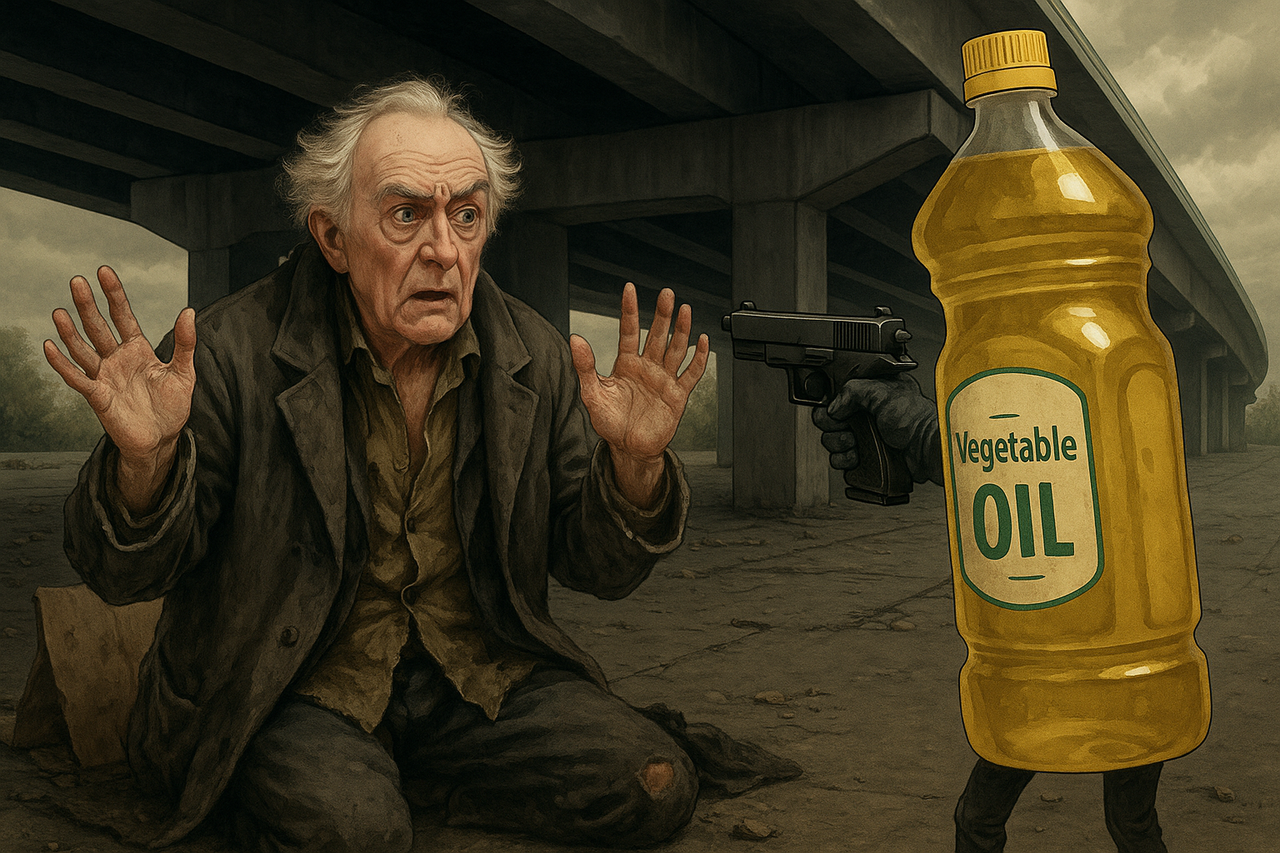
It’s time to stop blaming yourself. Stop worrying about basic dietary hygiene. Stop stressing about exercise, discipline, or personal responsibility. Harvarrd researchers have determined, with total confidence, that none of those things matter. The real problem — the root of your debt, loneliness, and cascading life failures — is seed oils.
“For years, society has convinced you it’s your spending habits, your emotional baggage, or that time you ghosted someone after three dates,” explained Dr. Lionel Kerr, lead author of the study. “But our data shows these were just symptoms of the deeper rot… and that rot is 100% soybean-based.”
The study reviewed thousands of case files, correlating financial ruin and relationship collapse with the steady presence of industrial cooking oils. “You think your bank account is empty because you bought a jet ski,” said Professor Sandra Pike from Harvarrd’s Department of Interdisciplinary Blame. “In reality, it’s because you fried something in canola back in 2014.”
Verification required digging through therapy transcripts, divorce records, and receipts for questionable fried appetizers. “Did we want to spend months compiling proof that seed oils are the silent architect of human misery? Not really,” Pike admitted. “Did we not want to? Also no. This kind of clarity is rare in science.”
As Kerr summarized at the press conference, “Your debt isn’t your fault. Your loneliness isn’t your fault. The treadmill gathering dust in your garage isn’t your fault. The only thing you need to do is stop letting rapeseed oil run your life.”
In Summation: It’s not you. It’s the seed oils. Always has been.
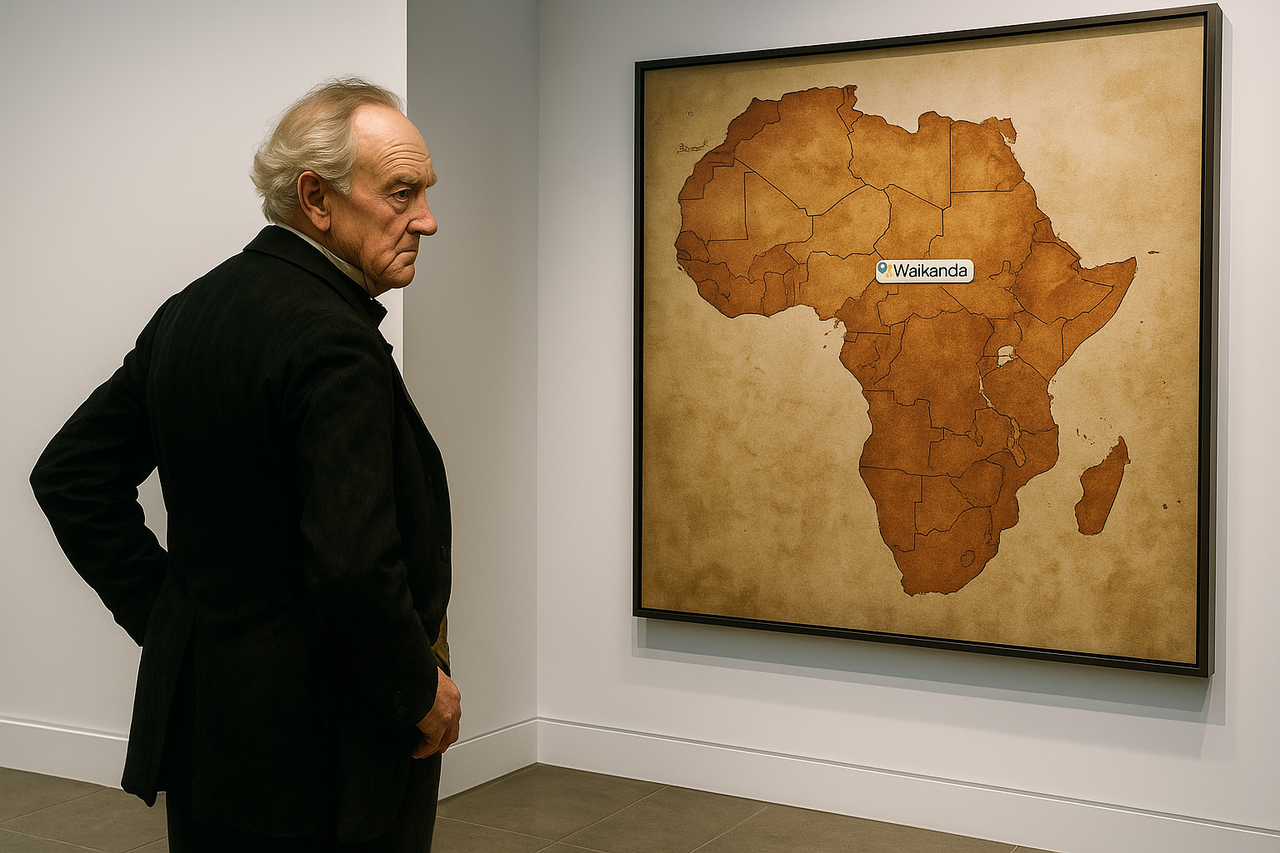
In a revelation that has humbled both the public and the academic elite, Harvarrd researchers have confirmed that Africa is not, in fact, a single country. We double-checked. Then we triple-checked. Because honestly, we were pretty sure it was a country too. But no... it isn’t. It really isn’t.
“It was one of those facts you just sort of… accept without ever questioning,” admitted Dr. Meredith Shaw, lead cartography specialist. “Someone says ‘the country of Africa,’ and you nod along. Next thing you know, you’re at a press conference explaining that actually, there are like over 40 countries, and now you look like the condescending one.”
The study involved rigorous review of maps, historical records, and every globe in the Harvarrd archives. Researchers even consulted Google Earth, “just to make absolutely sure we weren’t missing something obvious,” said Professor Roland Pike from Harvarrd’s Department of Geographical Corrections. “We zoomed in, expecting to find one capital city, but no… there were dozens. That was our first real clue.”
The process wasn’t without embarrassment. “We didn’t want to spend months on this,” Shaw said, “but we also didn’t not want to, because if we were wrong, we were about to get roasted by the entire internet.”
The final report confirms Africa’s status as a continent. A massive one with diverse nations, climates, and cultures. We urge the public to stop speaking of it like it’s Luxembourg. As Pike concluded at the press briefing, “It’s not a country. It’s a continent. And we can say that with absolute certainty now."
In Summation: Africa is not a country. We checked. A lot.

Still reeling from their Africa revelation, Harvarrd researchers have completed a follow-up investigation into Europe. And to everyone’s surprise, it’s not a single country either. “We went in fully expecting to confirm what everyone ‘knows,’” said Dr. Meredith Shaw, lead cartography specialist. “Obviously the UK is its own thing, but the rest of Europe? We assumed it was just one big country with a lot of castles. We were wrong.”
The study began as a casual verification exercise after the Africa fiasco, but quickly spiraled into a full-scale continental audit. “We double-checked every map we had,” said Professor Roland Pike from Harvarrd’s Department of Geographical Corrections. “Then we triple-checked. We even opened an actual printed atlas, which, frankly, felt like overkill.”
Findings confirmed that Europe is a patchwork of dozens of distinct countries, each with its own government, borders, and national anthem. “The idea that France and Germany aren’t just provinces of a greater European country was a shock to some of our staff,” Shaw admitted. “One intern asked if this meant she needed two different visas to eat pasta and bratwurst in the same week.”
As with Africa, the team emphasized that the error wasn’t entirely the public’s fault. “The European Union sounds exactly like a country,” Pike argued. “You’ve got a flag, a parliament, and a shared currency. What are we supposed to think?”
The final report encourages the public to treat Europe as the continent it is, though, as Shaw conceded, “We totally get why everyone thought it was one big country. We did too.”
In Summation: Europe is not a country. We checked, and no one is more surprised than us.

In a controversial new report, Harvarrd researchers have concluded that formal dueling (long dismissed as cruel and outdated) might have been one of history’s most efficient conflict resolution systems. “We’re not saying everything about it was perfect,” said Dr. Leonard Greaves, lead historian on the study, “but in terms of settling disputes quickly and decisively? The data speaks for itself.”
The team examined centuries of court records, personal letters, and newspaper clippings, finding that communities with active dueling traditions experienced fewer drawn-out feuds and a surprising degree of public civility. “When you know there’s a chance you’ll be shot at sunrise, you suddenly get very polite,” explained Professor Elaine Morwick from Harvarrd’s Department of Applied Historical Solutions.
Not everyone supported the research. “Other institutions called it disgusting and toxic,” Greaves admitted. “One peer reviewer even told me I was a fool for pursuing it.” But that changed after a personal demonstration. “When I showed up to his apartment at four in the morning with two cavalry swords and a pair of flintlocks, he changed his tune real quick,” Greaves said. “In fact, whenever I experienced dissent of any kind, I merely threatened to end their life at dawn through ritualized 18th century killing rules. It’s remarkable how cooperative people become.”
Critics still argue dueling was barbaric, but Harvarrd maintains it had its merits. “Look at modern alternatives,” Greaves said at the press briefing. “Drawn-out lawsuits, endless social media arguments, decades of political gridlock… Say what you will about dueling, but it wrapped things up by breakfast.”
In Summation: Duels dangerous, yes, but only for the loser.
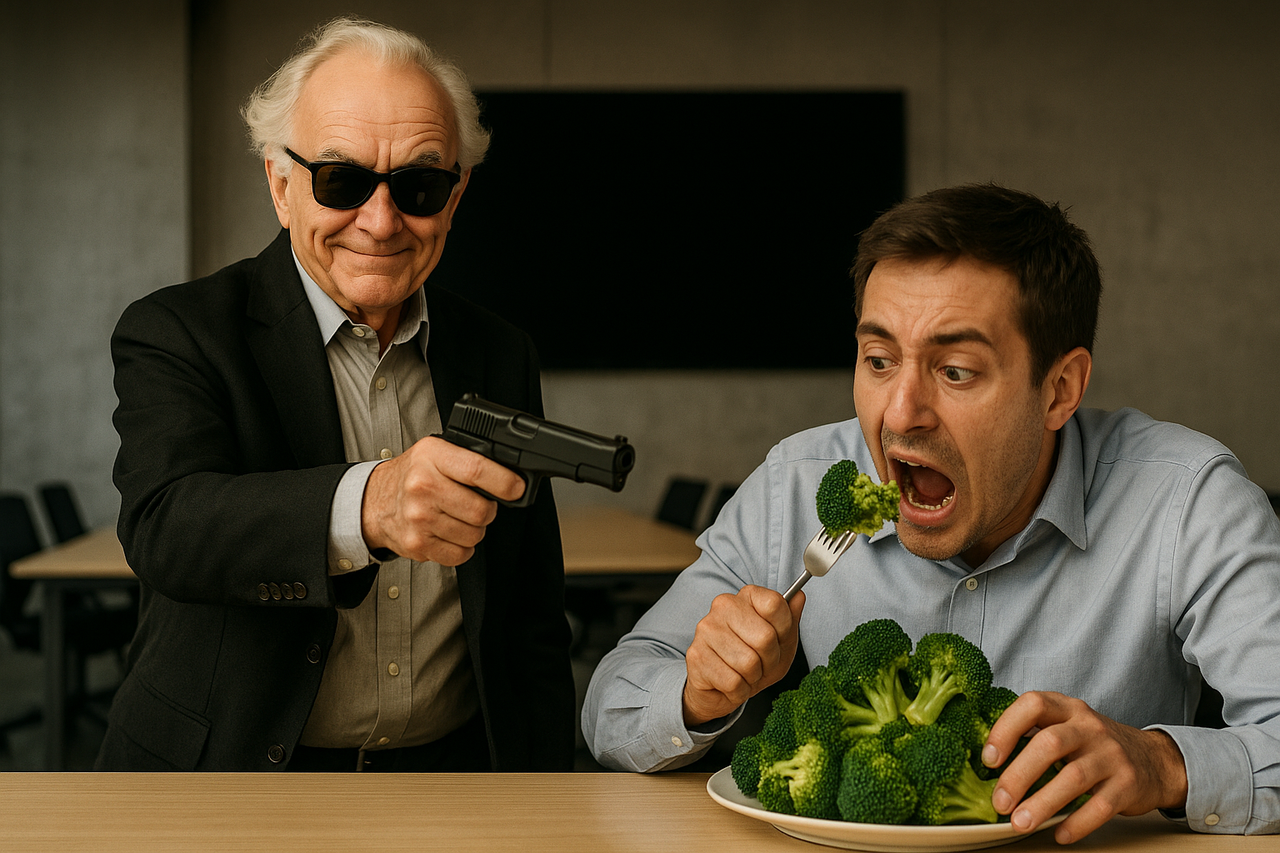
In what Harvarrd is calling “the most definitive dietary breakthrough of the century,” researchers have proven that armed insistence significantly increases vegetable consumption rates. “We’ve cracked the code on nutrition compliance,” said Dr. Irene Chalmers, lead author of the study. “Turns out the secret ingredient was fear.”
The research involved two groups: one given vegetables voluntarily, the other “encouraged” by a researcher holding a loaded handgun. “The voluntary group averaged three bites of broccoli,” Chalmers reported. “The gunpoint group finished the entire plate, including garnish.” Professor Allan Rudd from Harvarrd’s Department of Behavioral Persuasion added, “Incentives work, but nothing incentivizes like the imminent threat of death.”
Not everyone was thrilled about the methodology. “We got a lot of pushback from ethics boards,” Chalmers admitted. “But in the end, we decided the potential public health benefits outweighed the occasional property damage.” Rudd noted that resistance was minimal. “When someone’s aiming a Glock at you and your bean sprouts, you don’t argue about dressing.”
The findings suggest this approach could be applied to a range of dietary issues, from sugar reduction to portion control. “We could eliminate obesity in a month,” Chalmers said at the press briefing, “assuming we can train enough armed nutritionists.”
In Summation: Nothing makes you finish your peas like a loaded incentive.

Yep, just a mere three decades. This is what poor people don’t understand.
Sure, I could give you enormous wealth, a string of seaside villas, and a private chef who hand-feeds you grapes while reciting poetry. But after 30 years? You’ll still be unhappy. So honestly, it’s barely worth it if you think about it.
Lead researcher Dr. Malcolm Thorne described it as “the curse of knowing joy has an expiration date.” According to the study, the happiness clock starts ticking the moment you buy your first helicopter just to avoid rush hour. At first, every day is bliss — rare cars, art auctions, wine cellars so big you need a Segway to tour them. But around year 29, the joy fades. By year 30, your Rolls-Royce might as well be a Honda.
“This is why the rich are actually braver than anyone gives us credit for,” Thorne explained. “We walk into wealth knowing it will betray us in three short decades, and we accept that burden so others don’t have to.”
In Summation: Go ahead, stay poor. At least you’ll never know the crushing despair of your happiness expiring at year 31.
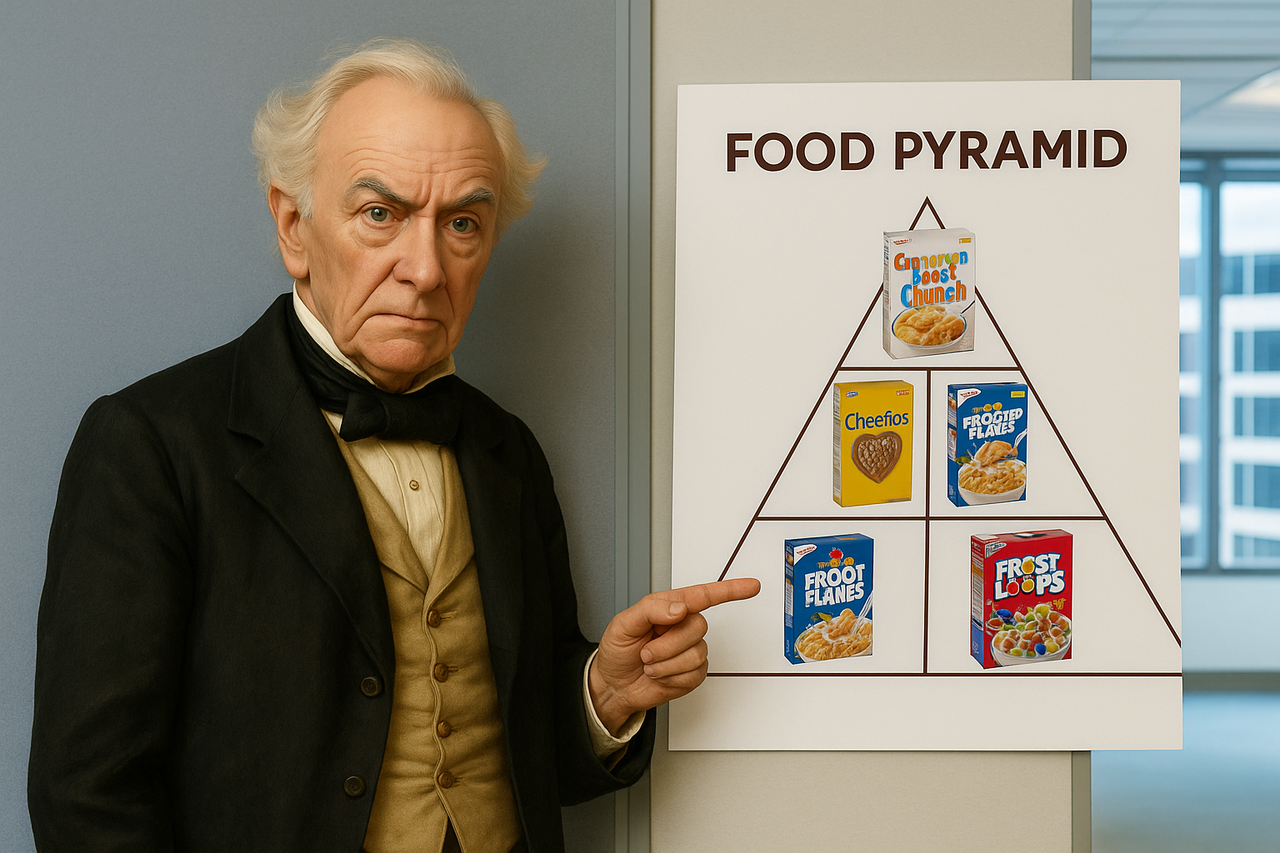
In a groundbreaking development that will forever reshape the way humanity approaches breakfast, Harvarrd researchers have unveiled the Triangular Nutritional Configuration™ a sleek, modern triangle where every corner is cereal.
Gone are the days when so-called “balanced diets” forced protein and fiber onto your plate. “Protein and fiber are just what Big Protein and Big Fiber want you to eat,” declared lead researcher Dr. Pauline Crest. “Our research shows you can live a perfectly happy, sugar-charged life without letting the lentil lobby or the chicken cartel dictate your morning.”
The study, generously funded by General Mills, proposes three essential food groups:
“This new triangle is stable, symmetrical, and contains zero guilt,” added Professor Grant Liddell from Harvarrd’s Department of Edible Geometry. “It’s not just a shape... it’s a statement. Each corner represents freedom from oppressive food groups, and each bite is a rebellion against the tyranny of nutrition.”
Critics have suggested the research is a thinly veiled marketing stunt. Dr. Crest dismissed this as “fake news from the fiber industry,” adding, “We did accept funding from General Mills, but only because they paid us in Cinnamon Toast Crunch. And honestly, have you had Cinnamon Toast Crunch?”
In Summation: The pyramid is all cereal. The only balanced breakfast worth fighting for.
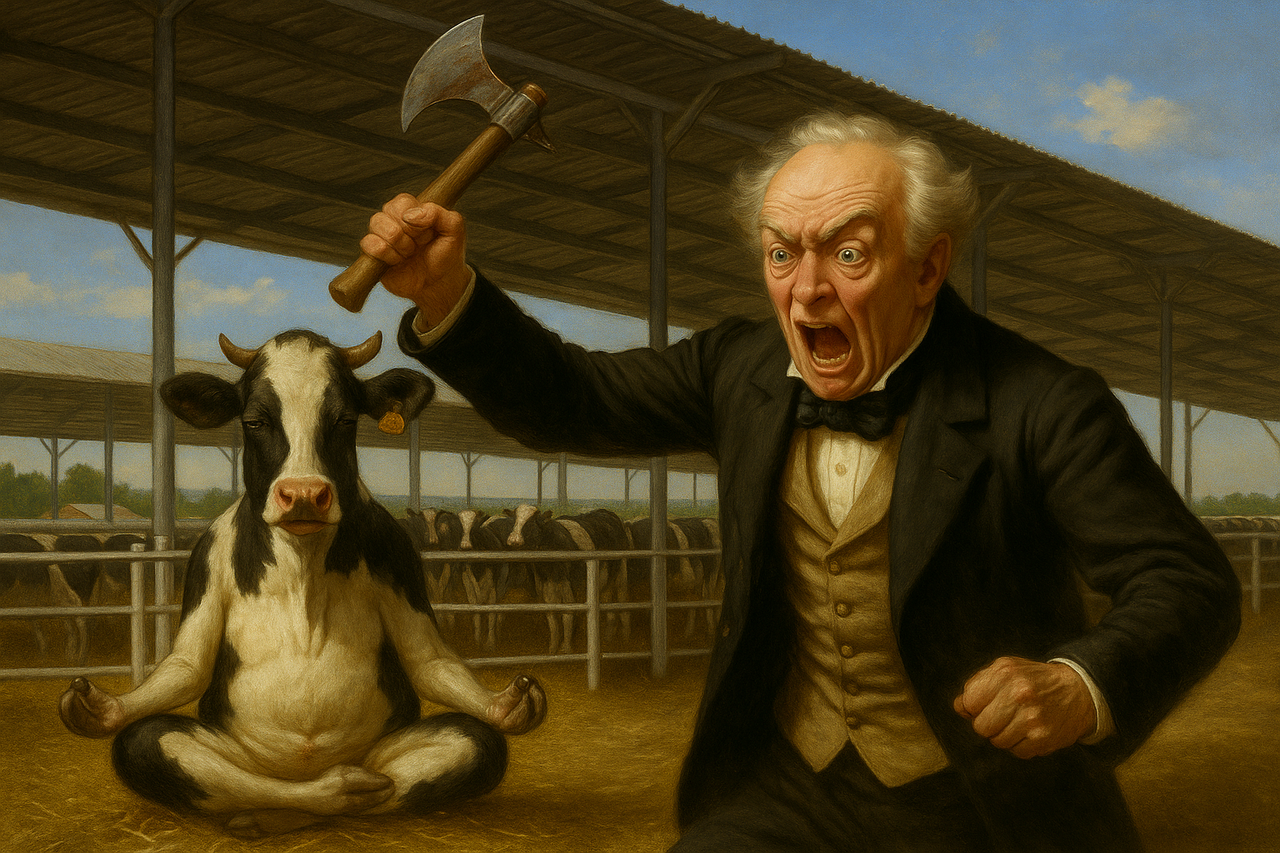
In a groundbreaking fusion of agricultural science and dietary morality, Harvarrd researchers have determined that cows are, in fact, fine with being butchered provided humans cut seed oils from their diets.
Lead investigator Dr. Elaine Mortimer explained the surprising conclusion: “Cows seem almost zen about the whole slaughterhouse thing, so long as they know they’re dying for the seed-oil-free cause. It’s as if they’re saying, ‘Turn me into a burger, just don’t fry me in canola.’”
The research involved what the team called “conversational moo-mapping,” a patented technique where bovine emotional states were gauged via subtle ear flicks and udder twitches. “When we mentioned soybean oil, we saw spikes in anxiety. When we mentioned tallow, they visibly relaxed,” said Mortimer.
The study has already sparked a movement among ranchers to market “consensually slaughtered, seed-oil-free” beef. “People think you can’t make ethical meat,” Mortimer added, “but now you can — assuming you’re willing to believe our wildly convenient definition of ethics.”
In Summation: Cows don’t mind dying… as long as you don’t baste them in the devil’s dressing.